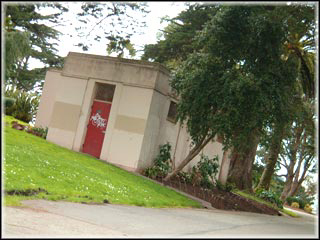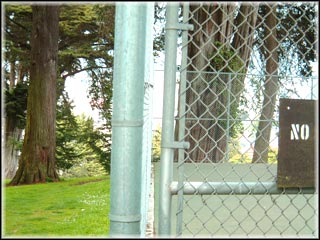Thou Doth Soothsayer Say...
2.10.03

Controversial loudmouth Camille Paglia was recently asked, in an interview with Salon.com, to offer her position on the likely US invasion of Iraq. After expressing a now-familiar viewpoint—that a war waged without backing from a broad international coalition is disrespectful of the "enormous, complex world beyond our borders"—Paglia went on to discuss the "terrible sense of foreboding" she felt as a "stunning omen" appeared to our country in the form of the Columbia shuttle disaster. "Anyone who thinks symbolically had to be shocked by the explosion of the Columbia shuttle, disintegrating in the air and strewing its parts and human remains over Texas—the president's home state!" Paglia reminds us of a long historical tradition of political leaders consulting oracles and soothsayers before making important decisions, such as launching a military campaign, then astutely points out, "If there was ever a sign for a president and his administration to rethink what they're doing, this was it."
Certainly Paglia is not the only one of us who had these thoughts when learning the Columbia had blown up. For those who derive greater symbolic meaning from the synchronicity of events, there's a lot to find in this one. What could be stranger, for instance, than the fact that this doomed mission carried first-ever Israeli astronaut Ilan Ramon—and that this same guy was one of eight Israeli pilots who bombed an Iraqi nuclear reactor in 1981? Consider all the possible folks in the world, then realize Ramon was a key player in two major world events that, now, join together in eerily-timed significance? Karma's a doozie, ain't it?
It is testament to our changed post-9/11 world that the first news reports following the Columbia disaster offered instant (though totally unconfirmable at the time) reassuring speculation that the explosion didn't appear to be a terrorist act. I don't recall anyone mentioning the terrorism possibility back in 1986 when the Challenger went down. Back then, such a link was inconceivable. But now, the collective American mind—not just the isolated symbolic thinkers or conspiracy theorists, but the mainstream news agencies—make this immediate mental leap. The events may not be causally related, but they are related nonetheless, if only because we relate them ourselves.
To illustrate this relation, in the aftermath of the Columbia explosion, a media issue was created out of how Arabs in the Middle East were reacting to the news. We Americans combed these reactions, used them as a litmus test to determine who are allies (i.e., those who said the accident is "a loss for all humanity") and who are enemies (i.e., those who said the accident is "divine justice"). One businessman from Oman was quoted as saying, "This is just an accident. The world loses thousands of people everyday, including many innocent children, and not just seven astronauts." His response is matter-of-fact, truthful, puts things into perspective—and yet still sounds callous to American ears, who expect to hear talk of tragedy from all directions, even from nationals of countries most of us couldn't find on maps. By the way, anyone hear about the terrorist car bombing in Bogota, Colombia, that leveled an 11-story building and killed 32 people? Anyone care if that's relevant to our conveniently arbitrary war or terror?
It
may seem quaint when Paglia speaks of leaders seeking oracular advice,
like some precious relic from the times of Caesar or Alexander the Great—if
not for the glaring modern example of Ronald
Reagan and his consultations with astrologers throughout his presidency.
Reagan sought counsel from astrologer Joan Quigley, among others, for
 assistance in choosing the most cosmically fortunate times for important
acts. For example, Quigley used astrology to help Reagan time his candidacy
announcements and inaugurations, as well as US attacks on Libya and the
invasion of Grenada. Is it any wonder that Reagan ("the Teflon president")
succeeded in leaving such a glorious legacy for himself in the eyes of
so many Americans?
assistance in choosing the most cosmically fortunate times for important
acts. For example, Quigley used astrology to help Reagan time his candidacy
announcements and inaugurations, as well as US attacks on Libya and the
invasion of Grenada. Is it any wonder that Reagan ("the Teflon president")
succeeded in leaving such a glorious legacy for himself in the eyes of
so many Americans?
If only George W. Bush followed the example of his exalted predecessor Reagan, Bush's charismatic and (dare I even say it?) intellectual superior, then some astrological soothsayer would, right about now, be warning him about the currently tense astrological patterns. Someone would be telling Bush to watch for unexpected surprises, not to assume his inflated visions will play out as he hopes, to be prepared for the fiercest of battles between opposing wills. The next couple weeks, building through this week and peaking over the weekend, is the period which a good astrologer would circle on the President's calendar in bright magic marker. But since I'm no presidential advisor and Mr. Bush is probably not reading this column, I'll make my comments here and offer my advice to you instead.
(1) Expect the unexpected. The winds of change are blowing shocking developments right in our faces. Sunday brings a dynamic and rebellious full moon in Leo, with the Sun in Aquarius conjunct Uranus, its ruling planet. Three months ago, at the last lunar eclipse, I mentioned how influential Uranus would be over the succeeding several months. Uranus, with its sharp rebellious streak and its lack of respect for tradition, forces us to break free from long-standing situations by delivering sudden shocks that snap us into new perspective. Uranus loves revolution and chaos and has no problem creating discomfort, an unavoidable byproduct, in the process. Now, its close solar conjunction during the full moon—the last time such an effect will happen in Aquarius for a long time—casts a Uranian electricity over us. Any areas of our lives that warranted attention and/or change during the eclipse in mid-November should probably be revisited and may require additional reform now. Nothing, indeed, is terribly settled.
(2) Beware of distorted reality. It's quite possible that, among the grand hopes and expansive visions for the future, we are missing some important reality-checks not quite visible from beneath the rose-colored specs. Just two weeks ago, I discussed the impact of the ongoing Jupiter-Neptune opposition, which inflates our dreams and ideals to encourage growth and exploration—while, at the same time, obscuring our ability to see things as they really are. Our hopes and dreams get bigger, but so do our blind spots. Now, just as the Moon turns full on Sunday, Jupiter and Neptune hit the second of three exact peaks of opposition. The Jupiter-Neptune effect is a beautiful one which can open our eyes to new ways of expressing ourselves through faith and creativity. It can also mislead us into thinking we've got it all figured out when, in fact, we don't and may never. Watch for bloated egos.
(3) Ferocious power struggles abound. And, along with them, the cathartic release of deep dark energy through the potential destruction of outdated structures. Saturn and Pluto return as close as they will to an opposition (within 2½ degrees), reactivating the somber mood they cast during the aspect's peak period, from Aug 01 to May 02. The Saturn-Pluto opposition brings necessary though painful death to those symbols of past accomplishments which have hardened into inflexible circumstances. (Astrologers have pointed to the 9/11 events as the most evident example of this Saturn-Pluto influence.) Such death is essential in order to clear the way for rebirth to occur—but that doesn't make it any less difficult.
While this aspect had gradually dissipated in intensity over the last several months, we get a sharp reminder of its ongoing effect when Mars enters the picture, coming into conjunction with Pluto at the same time as the full moon. Yowsa! When Mars and Pluto meet, we find immense concentration of strength, will, and, if need be, aggression. Everyone's willing to fight for their sense of right. No one wants to back down. Thus, it's a fight to the death. With Mars, Saturn and Pluto all involved, this is a serious game all right. Just when we thought we'd finally made it to the light, this brief but intense return to darkness reminds us never to count those unhatched chickens.
Now, if you were George W. Bush, wouldn't you listen to what your soothsayer was saying and adapt your actions accordingly? Alas, you're not. But you too may have actions to adapt...


